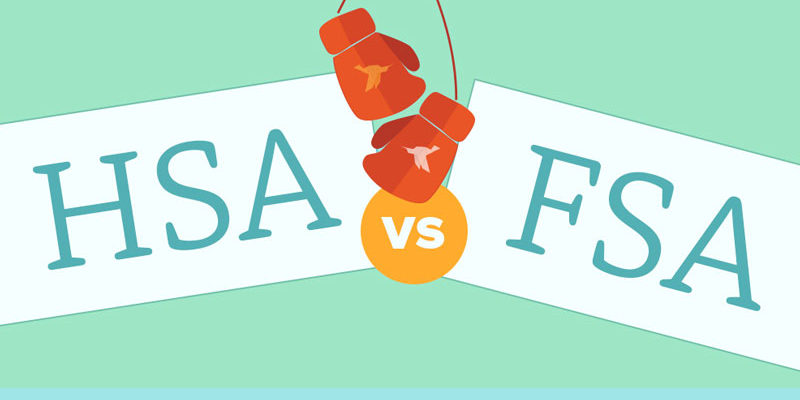Nothing is more important than you and your loved ones’ health. It is inevitable that you or someone you love will have some medical expenses in the near future. That is why setting aside some cash is a must. Accounts like HSAs and FSAs can help you do this while helping you save money through their pre-tax benefits.
But, what’s the difference between FSA vs. HSA?
FSA vs. HSA: A Short Definition
HSAs and FSAs are accounts useful for employees to let them set aside money for health care costs or qualified expenses which are usually associated with the health insurance plans.
These costs can include coinsurance, copayments, monthly prescriptions, and others. Most of the time, you are going to receive a debit card which will be linked to your own account that you will be able to use for such costs as needed. Since these two accounts are both helpful when it comes to setting aside cash for health costs, it will be a great idea to open either of the two.
Differences between FSA vs. HSA
The FSAs were introduced first, initially started back in the 1970s. Such accounts have been made by employers to help their employees in saving pre-tax dollars for healthcare expenses.
It means that the employee will get more for his dollar since the earnings will be put directly to the account with no need to take out any taxes.
Of course, there are some limitations. For the medical FSA, the contribution limit is often set at $2,500. For dependent care FSA, the limit is at $5,000.
The HSAs came a bit later, and have been designed to ease the pains of with the ever growing healthcare costs. Similar to FSAs, the HAS contributions are also pre-tax, which then helps you save more money.
The HSAs are actually individual accounts. When you contribute your very own post-tax, something that you can possibly do, you will then be deducting these contributions on your taxes by yourself. When your employer allows you to contribute using a cafeteria plan, it will be automatically reported as a form of pre-tax on the W-2.
Not like the FSAs, the HSAs don’t necessarily have to be set up by the employer. You need to be below 65 years old and must have high deductible health insurance for you to become qualified for this kind of account.
What’s the Better Option for You?
One of the biggest selling points of HAS is no doubt the flexibility that it offers. This can follow you from one job to another, while you will usually lose your FSA when you change jobs.
The HAS contributions can be changed or stopped at any time. The changes to FSA contribution are subject to some special rules, such as child adoption or marriage.
The FSAs have the so called use it or lose it policy, so any cash you don’t get to spend in one year is going to be lost. The HSAs let your money rollover.
With these being said, it is easy to see that both are beneficial. It is up to you to choose which will work best for your needs.


